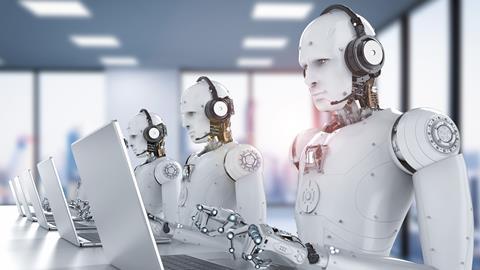Generative AI could take on a wide range of judicial tasks - but is a long way from replacing human judges, according to the first report on the sitting judiciary's attitudes to the technology. The academic study proposes a randomised trial of AI technology to generate more data about its effectivness.
The study*, published today, is based on focus‑group discussions with a cross-section of 12 judges, including five members of the Supreme Court. It highlights enthusiasm for AI’s efficiency gains - alongside concern for justice’s human dimension. 'Anything that can improve efficiency and productivity whilst ensuring we don’t lose the essence of what justice is, is exciting and to be to be welcomed,' one focus group participant is quoted as saying.
According to the report judges see AI as a possible way to cut paperwork, triage small claims and free courts to focus on complex cases, as well as to handle new tasks, such as preparing judgment summaries for specific readerships.
However the report finds scepticism about AI's ability to take on judicial decision-making, with the exception of small money claims.
'When we come out of a case, we all meet together and discuss what we think about it and why. We can’t have a room of robots doing that,' was among the comments recorded in the focus groups. Another judge said: 'People take comfort from having a human face, a human decision maker … I doubt whether AI will achieve that cathartic role that human justice does.'
The authors note that participants' attitudes to AI are shaped by their own levels of familiarity with the technology and the current capabilities of AI tools - 'both of which are likely to evolve over time'.
Among proposals for future research is a randomised controlled experiment, comparing a sample of judges given access to the technology with those working conventionally. Such an exercise could measure 'not only "hard" outcomes - like case throughput or reversal rates - but also "soft" metrics such as litigant satisfaction, perceived fairness, and the system's overall legitimacy,' the authors suggest.
'Our research points toward a legal future where AI complements rather than replaces human judgment,' said co-author Dr Brian Flanagan, associate professor in law at Maynooth University, Ireland. 'Our participants believe that the thoughtful integration of AI could enhance the judicial process, but that clear boundaries must be established to maintain the core human values inherent in justice.'
*Interacting with AI at Work: Perceptions and Opportunities for the UK Judiciary (proceedings of next week’s 4th Symposium on Human-Computer Interaction for Work).
This article is now closed for comment.






























11 Readers' comments